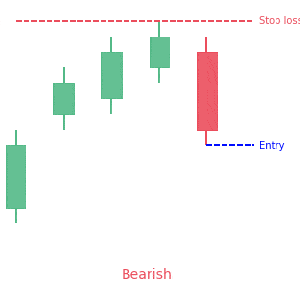Understanding blue chip stocks vs. mutual funds are imperative because they both are different types of investments. Trading stocks has never been as easy as it is today in this digital era. You can easily buy and sell your stocks using your laptop and an internet connection. Additionally, most brokerage companies have stopped charging commissions on stock trading. Conversely, mutual funds are a different story as they accompany hefty commissions and management fees. However, this doesn’t necessarily mean that stocks are a better choice. We will see how.
To help you make an educated decision when it comes to blue chip stocks vs. mutual funds, we are here. In this article, we are going to explain how these two types of investments are different. Additionally, we shall also tell you about their advantages and disadvantages. Finally, you will be able to understand which type of investment is better for you.
Blue chip stocks vs. mutual funds
Investors have a variety of investment options these days. It is a good thing for the investing profession. At the same time, however, it makes investors face a dilemma and that is where to invest their money. One among those dilemmas is blue chip stocks vs. mutual funds. These types of investments differ widely. They have certain advantages as well as advantages. To make a good investment decision, you need to understand how blue chip stocks and mutual funds differ from each other. So, let’s have a look at the differences.
Blue chip stocks vs. mutual funds – the differences
Understanding the differences between blue Chip Stocks vs. mutual funds leads you to choose between the two seamlessly. In fact, it leads you to choose the one that is best for your investment strategy and goals.
Structure
First things first. Blue Chip Stocks and mutual funds are structurally miles apart. Blue chip stocks are stocks of highly reputed and well-established companies. Such companies have a long history of success and have been in existence for years. When you buy blue chip stocks, it means you own shares of a company or companies. Whereas, mutual funds refer to large portfolios of stocks and bonds. That means, investing in them is like investing in both stocks and bonds.
How these two types of investments are made available to investors is another structural difference. As you know, the stock is issued by the company. You can buy and sell stocks through any brokerage firm Contrarily, financial services companies manage mutual funds. They make portfolios and then sell shares of those portfolios to investors. Financial services companies make money through fees while investors make money through the funds.
Risk
There is no doubt in the fact that blue chip stocks are low-risk investments. However, you cannot ignore risk because lots of factors can impact a company’s performance. So, you always have to consider risk even when investing in the top companies in the world. Whereas, mutual funds are comparatively safer because they offer diversity and bonds also make them safer.
Liquidity
You can easily sell blue chip stocks whenever you want, wherever you want. They are always in high demand and that is why liquidity is high. Contrarily, there are numerous factors that decide the liquidity of mutual funds. So, their liquidity remains comparatively low.
Advantages and disadvantages of investing in blue chip stocks vs. ETFs
The following are the advantages and disadvantages of investing in blue chip stocks.
Advantages of blue chip stocks
- Stocks of highly established and stable companies with strong financial health
- Pay dividends consistently
- Higher demand and liquidity
- Investing in blue chip stocks promises greater control and flexibility
- Free stock trading on several brokerage firms
Disadvantages of blue chip stocks
- Requires huge capital because of high share prices
- Established companies mean lower growth potential
- Make diversification difficult for average investors
Advantages of mutual funds
- Ensure higher capital appreciation
- Better investment option for investors looking for long terms
- Capital requirements are low
- Make diversification easier
Disadvantages of ETFs
- Low liquidity
- Accompany commissions and management fees
Which one is better for you?
Both blue chip stocks and mutual funds are good investment options for long-term investment. The major difference between the two is a risk. Blue chip stocks are riskier because you invest in individual companies. Conversely, mutual funds consist of a pool of stocks of several companies. So, the risk decreases because of diversification. The ultimate choice between blue Chip Stocks vs. mutual funds comes down to your investment strategy, goals, and personal preferences.
 Good Trading requires the Best Charting Tool!
Good Trading requires the Best Charting Tool!

 We loved Marwood Research’s course “Candlestick Analysis For Professional Traders“. Do you want to follow a great video course and deep dive into 26 candlestick patterns (and compare their success rates)? Then make sure to check this course!
We loved Marwood Research’s course “Candlestick Analysis For Professional Traders“. Do you want to follow a great video course and deep dive into 26 candlestick patterns (and compare their success rates)? Then make sure to check this course!